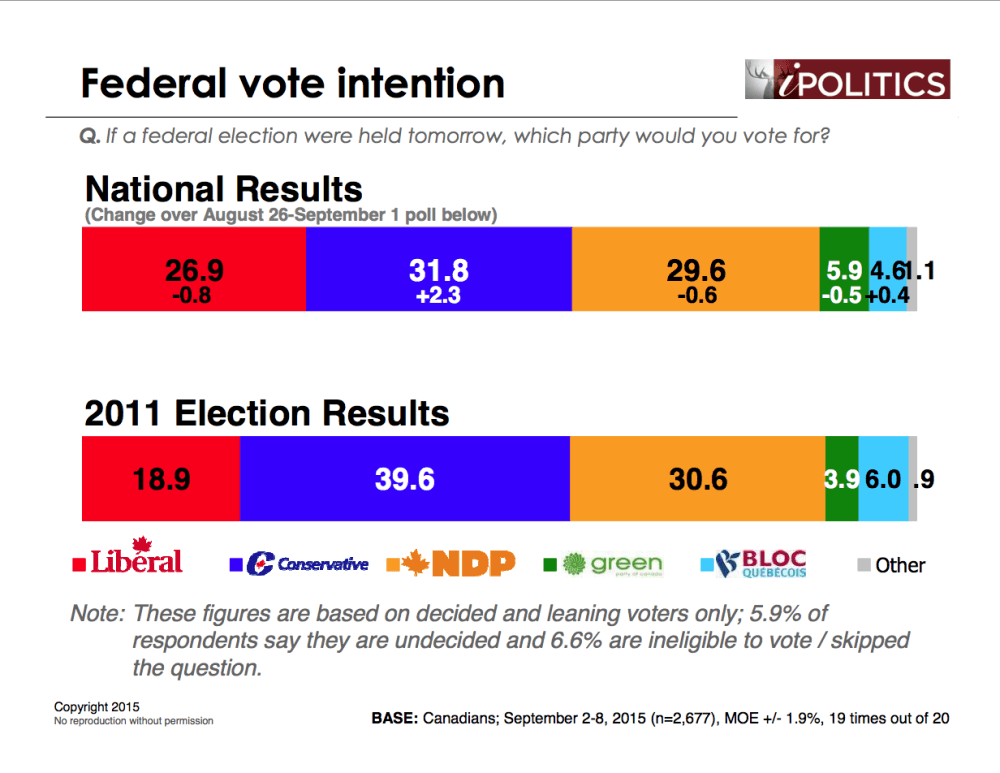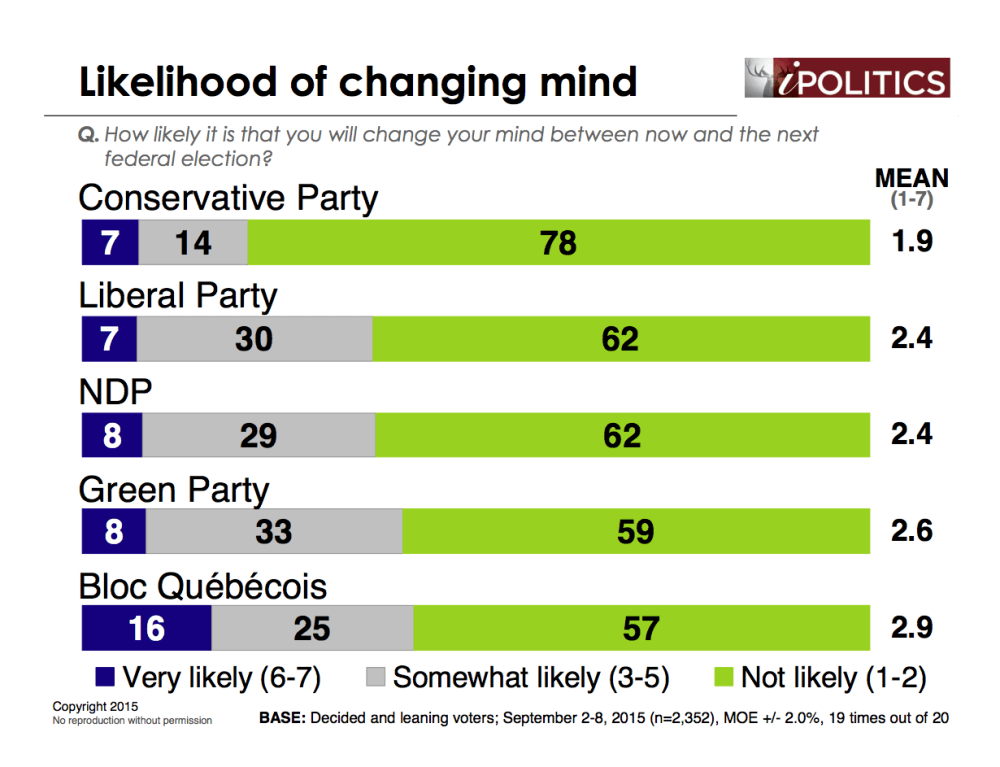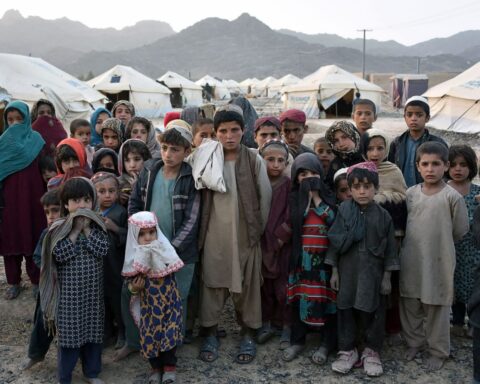The past week in the campaign has seen a flood of emotional reactions to the Syrian refugee crisis, running the gamut from concern to horror. The searing image of a drowned three-year-old pushed the issue to the centre of the campaign. Polling and press coverage seem to agree that Stephen Harper’s Conservatives got off on the wrong foot on the issue, with serious potential consequences for their re-election prospects.
Our data show that the values of the Canadian majority are clashing with those of the Conservative base over the refugee crisis — but it doesn’t necessarily follow that the Conservatives have misread the electorate this time.

A clear majority of Canadians believe that more needs to be done to help refugees and shift the policy focus away from military action. In Conservative Canada, however, the reverse is true. Older, less educated and male voters are much more attracted to the Conservative position on the refugee crisis than members of the residual majority. Conservatives are more hawkish on the preferred focus of the ISIS mission, while we see the exact opposite for centre-left supporters.
Note also the significant difference between parties in terms of the number of those saying Canada is taking in too few Syrian refuges. Conservatives are roughly four times less likely to agree that there are too few refugees coming from Syria. Only 12 per cent think that we should increase our intake of refugees — which is consistent with our past research that shows Conservative supporters are more likely to say that we are admitting both too many immigrants and too many visible minorities.

In fact, the current conventional wisdom on this issue is probably wrong; the refugee crisis has not hurt Mr. Harper. In fact, it seems to be helping him. It appears from our polling that the Conservative party has consolidated — and possibly even expanded — its base. At these numbers, the Conservatives could easily win the election and form a minority government despite being stuck at 32 points.
If you’ve been following the issue in the media, this might seem like a paradox. But while the Conservative party faces some serious challenges, they’re doing more than treading water. The Conservatives are now just a few points away from where they were in 2011 at this stage of the campaign, which resulted in a majority victory.
Furthermore, the Conservatives are now showing the highest levels of voter engagement of any party — something which they couldn’t say just a few weeks ago. Conservative voters are much less likely to say they might change their mind (although seven per cent say it’s likely).
So the refugee crisis has made the Conservative base more angry, more emotionally engaged and more committed to voting Conservative as this debate has progressed.
Frank Graves is founder and president of EKOS Polling.
This study was conducted using High Definition Interactive Voice Response (HD-IVR™) technology, which allows respondents to enter their preferences by punching the keypad on their phone, rather than telling them to an operator. In an effort to reduce the coverage bias of landline only RDD, we created a dual landline/cell phone RDD sampling frame for this research. As a result, we are able to reach those with a landline and cell phone, as well as cell phone only households and landline only households.
The field dates for this survey are September 2-8, 2015. In total, a random sample of 2,677 Canadian adults aged 18 and over responded to the survey. The margin of error associated with the total sample is +/- 1.9 percentage points, 19 times out of 20.
Please note that the margin of error increases when the results are sub-divided (i.e., error margins for sub-groups such as region, sex, age, education). All the data have been statistically weighted by age, gender, region, and educational attainment to ensure the sample’s composition reflects that of the actual population of Canada according to Census data.
Published in partnership with iPolitics.ca.




